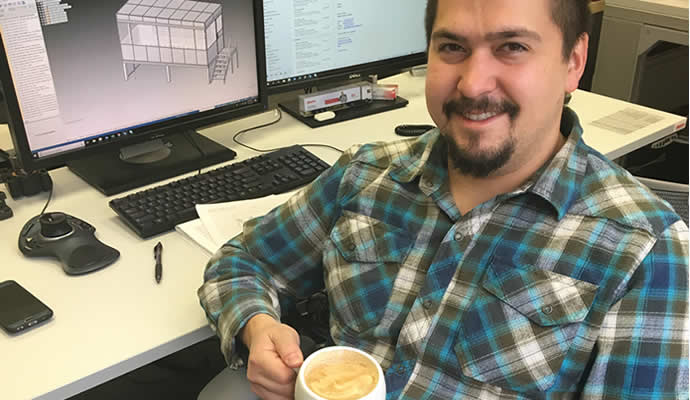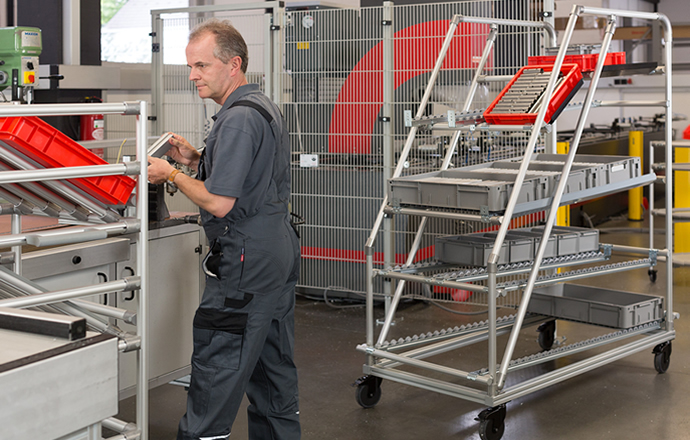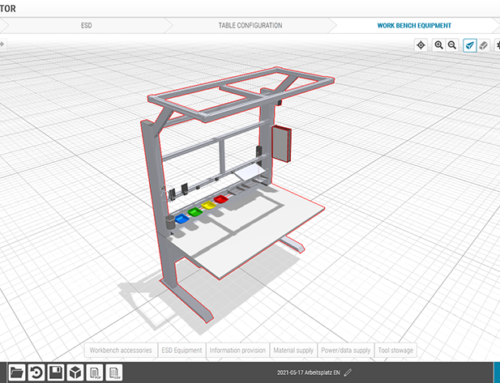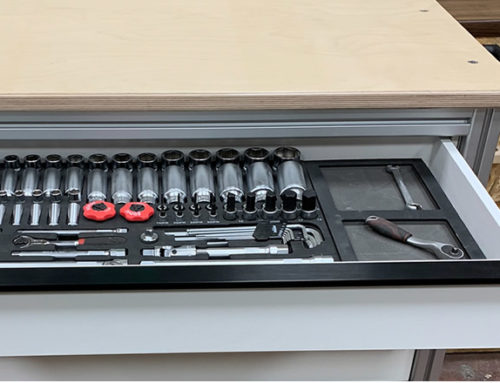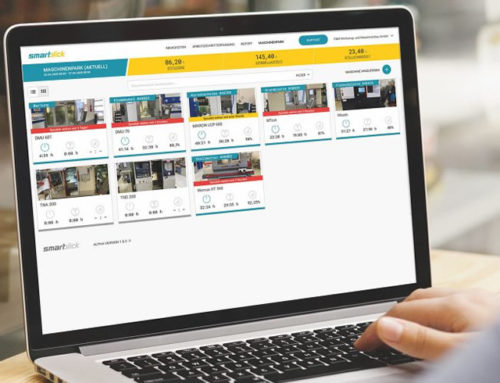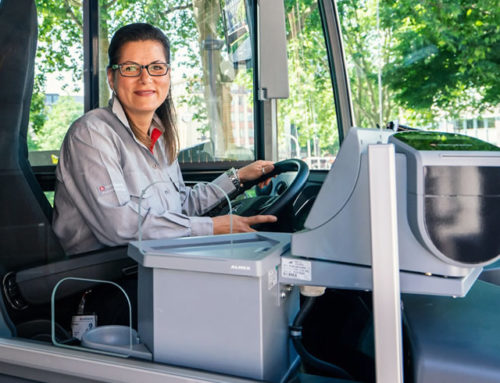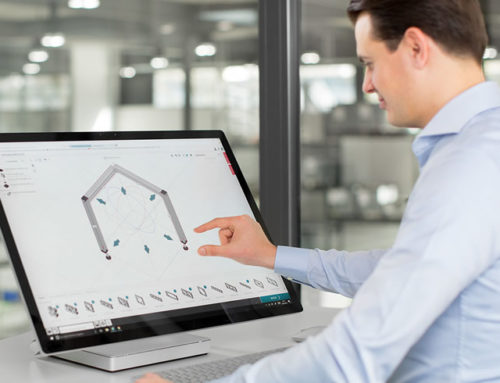How people with disabilities can support companies and what they need for top working conditions.
To this day, disabled people are still not getting the attention they deserve on the labour market, even when they clearly have a great deal to offer prospective employers. For instance, approximately 60 percent of jobseekers with severe disabilities in Germany have vocational training or higher education qualifications under their belts. The advantages of disabled workers often go way beyond mere qualifications, however, as they are also frontrunners when it comes to intrinsic motivation and social skills. By using barrier-free work benches, industrial companies can offer disabled employees every opportunity to unleash their full potential. What’s more, employers can gain access to subsidies – a real win-win scenario for everyone involved.
Integration subsidy for people with disabilities (including severe disabilities)
The German government has taken various steps to help disabled people integrate into the job market. The integration subsidy for people with disabilities (including severe disabilities) is aimed specifically at employees who have previously struggled to find work. Up to 70 percent of the employee’s salary could be covered over a period of up to two years, with the subsidy dropping by at least ten percent after twelve months. In the case of employees with a severe disability, up to 70 percent of their wages could be subsidized for a period of 60 months.
The funding period can even be up to 96 months in the case of staff aged over 55. In many cases, employers also receive financial support to modernize or procure a new workstation in a suitable configuration. Moreover, every business in Germany that employs more than 20 people is actually required by law to fill at least five percent of positions with disabled candidates. Companies that fail to comply must pay a compensatory levy.
What makes disabled employees stand out
Many disabled workers are exceptionally motivated and have a very strong work ethic. They are keen to seize the opportunities offered to them by barrier-free work benches. Besides such loyalty, employees with disabilities are known to be empathetic and have impressive communication skills. That puts them in the perfect position to improve the work environment in such a way that the whole workforce benefits.
Social skills aside, hiring disabled candidates also opens up remarkable opportunities for external communication. Demonstrating the importance of social responsibility helps companies establish a credible position. Particularly in modern times, companies are subject to intense scrutiny and are rightly being called on to take a stance on diversity and inclusion. Now more than ever before, it is crucial to support employees with disabilities.
Creating opportunities with barrier-free work benches
Wheelchair users and people that have difficulty walking or standing have a restricted reach. This means they are unable to bend or stretch and can’t necessarily lay their hand on objects that are further than arm’s length away. They often find it difficult to reach across large distances, especially when this involves moving their torso. Since these reaching motions are a common feature of assembly work, they would significantly heighten the risk of musculoskeletal complaints, with significant strain being placed on the shoulders and back.
Individually adjustable material supply solutions such as those found on barrier-free work benches can effectively prevent such problems from occurring. Tools such as Pivot Arms can be used to place material directly in the one-handed zone – the area where objects that are frequently needed during the working process should be kept. The two-handed zone positioned directly in front of the worker, meanwhile, is where the actual assembly process takes place. As everyone is different, the one-handed and two-handed zones need to be customised to suit each employee’s specific needs. When working at barrier-free work benches, it is therefore vital users can make adjustments as and when required. This becomes obvious if we think about body height, which is why a height-adjustable work bench is essential for any work environment designed to give disabled employees optimum support.
Are you interested in ergonomics and accessible solutions that break down barriers? Then we have something that might just help! Simply subscribe to the item blog by completing the box at the top right!
